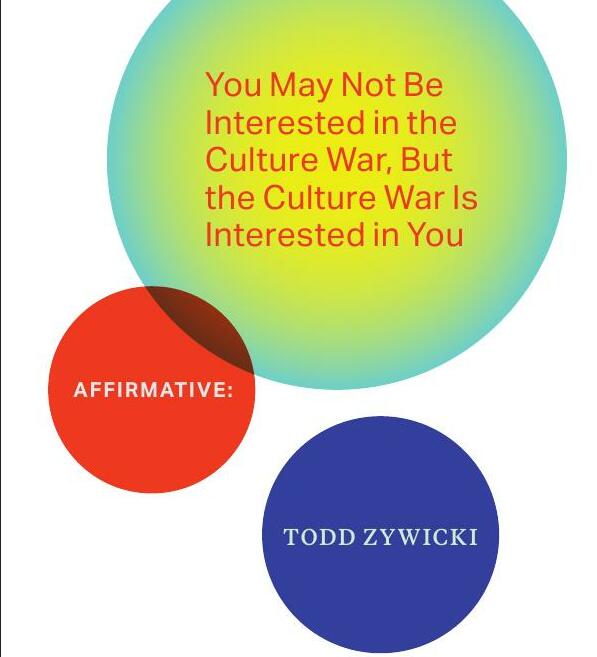
TO PARAPHRASE THE aphorism attributed to Leon Trotsky: You may not be interested in the culture war, but the culture war is interested in you. Just as ignoring the reality of war won't keep your house from being bombed, ignoring the culture war isn't going to obviate the threat it poses to individual liberty. As society and daily life become increasingly politicized, it is time for libertarians to accept that to preserve individual liberty, the government must affirmatively intervene in the culture war.
The use of government power can be liberty-enhancing-most obviously by restraining the exercise of government action through the rule of law and constitutional limits, but also by restraining private actors by protecting property rights against theft or vandalism, enforcing contracts, protecting against assault or other bodily harm, and other exercises of government power that restrict some people's freedom of action in order to enhance others'.
Libertarians, including myself, have traditionally navigated these competing rights claims through a simple and highly effective dichotomy oriented around property rights: The primary threat to freedom is the exercise of government (public) power, whereas the exercise of private power to exclude via property rights and freedom of contract is generally considered not only untroubling but actually freedom-enhancing. Moreover, asking government to do more (such as by limiting the power to exclude or freedom of contract) is fraught with the risk of unintended consequences of unleashing Leviathan.
In an ideal world-the world of the "first-best"-this public-private binary has much to commend it. The arbitrary exercise of private power will be checked by market forces and freedom of choice. Employers or restaurants that discriminate will find themselves bankrupted in competition with those that do not. Adapt or die.
This story is from the {{IssueName}} edition of {{MagazineName}}.
Start your 7-day Magzter GOLD free trial to access thousands of curated premium stories, and 9,000+ magazines and newspapers.
Already a subscriber ? Sign In
This story is from the {{IssueName}} edition of {{MagazineName}}.
Start your 7-day Magzter GOLD free trial to access thousands of curated premium stories, and 9,000+ magazines and newspapers.
Already a subscriber? Sign In

THE REAL THREAT IS AN ISOLATED CHINA
DECOUPLING FROM TRADE WILL MAKE THE U.S. POORER AND CHINA MORE TOTALITARIAN.

Against Our Own Best Souls'
SISTER HELEN PREJEAN ON HERLIFE ASA WITNESS ON DEATH ROW

'THE POLITICS HAVE COME TO US'
HOW A CHRISTIAN CHARITY IN EL PASO ENDED UP AT WAR WITH THE TEXAS GOVERNMENT FOR HELPING UNDOCUMENTED IMMIGRANTS

MATERIEL LOSS
HOW THE U.S. MILITARY BUSTS ITS BUDGET ON WASTEFUL, CARELESS, AND UNNECESSARY 'SELF-LICKING ICE CREAM CONES'

'NOT A SUICIDE PACT'
HOW A 1949 SUPREME COURT DISSENT GAVE BIRTH TO A MEME THAT SUBVERTS FREE SPEECH AND CIVIL LIBERTIES

HOW MUSK CAN HELP TRUMP CUT TRILLIONS
DURING PRESIDENT DONALD Trump’s first term in office, the national debt increased by $8 trillion—due, in large part, to huge spending hikes that Congress passed and Trump signed.

THE IMPROBABLE RISE OF MAGA-MUSK
IS ELON MUSK A REACTIONARY WITHA DEFECTIVE BULLSHIT METER OR THE BEST PART OF THE SECOND TRUMP ADMINISTRATION?

A Free-Range Family
RIGHT NOW, CHILDHOOD is intensely meh. Maybe you read the recent report in The Journal of Pediatrics that said that as kids' independence and free play have gone down, their anxiety and depression have been going up.

Educulture Wars
THE CULTURE WAR is costing school districts billions, according to a report released in October 2024 by the UCLA Institute for Democracy, Education, and Access. The report surveyed superintendents at 467 school districts nationwide about extra expenditures they undertook because of increased conflict over culture war issues such as critical race theory, book chal- lenges, gender-related debates, and other politicized topics. The report estimates that such fights cost school districts around $3.2 billion during the 2023-2024 school year.

Q&A Penny Lane
PENNY LANE'S NEW Netflix documentary, Confessions of a Good Samaritan, delves into her life-changing decision to donate a kidney to a stranger. Known for her thoughtful and provocative storytelling, Lane has explored human connection and empathy in films such as Hail Satan? and The Pain of Others. Last October she spoke with Reason's Nick Gillespie and shared her emotional, physical, and philosophical experience with anonymous kidney donation and the challenges that came with it.